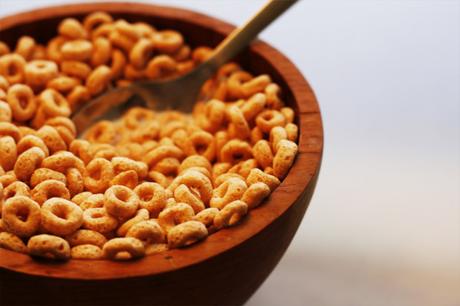
We have this idea in the United States that there are people watching out for us. Our tax money goes to these big government bodies that protect us and make sure we’re safe. We go to the store and purchase our gluten free hamburger buns, tortillas, and waffles assuming that we’re safe eating them. The recent scuttlebutt over gluten free Cheerios is disturbing. For those of us with celiac disease, eating something with gluten has very serious consequences. It makes us wonder whose watching out for us anyway. How does this sort of thing happen?
The Food and Drug Administration (aka the FDA) is responsible for the safety of our food and beverages, in addition to medical devices, drugs, and other things. They’re the ones watching out for us. It’s a part of the Department of Health and Human Services. Up until the 1900’s the food supply in the US was the Wild West. There was no oversight and few laws governing any consumer products including foods. Food manufacturers could put all sorts of outlandish claims on their products. Want to cure baldness? Try some of my special cucumber salsa! They could also pass one product off for another. Think you’re eating ground angus beef? It could be beef or it could be squirrel. Who knows!
In the later portion of the 1800’s a chemist with the U.S. Department of Agriculture named Harvey Wiley started looking into the mislabeling and adulteration of the food supply in the U.S. His work would lead to the passage of the Food and Drug Act in 1906 that created the FDA. It’s the FDA that is supposed to make sure that food is safe, labeled correctly, and free from harmful pathogens or other products that could kill or sicken you.
What happens when something goes awry and food isn’t safe to consume? There’s a lot of
criticism about FDA oversight of food manufactures as being too lax. However, no matter how strict regulation and oversight is some human will find a way to screw things up. Something is going to go wrong in some food production facility at some point. What does the FDA do when that happens? Prior to the Food Safety Modernization Act passed in 2011 the FDA had to request that a company recall a product and the company would voluntarily have to do so. The FDA could not force a company to recall a product even if that product was known to be dangerous without a lengthy, laborious court process that required the FDA to get a court order to seize the offending food products. That’s not a lot of power for a government agency that’s supposed to be protecting us. Because of the FSMA, the FDA can now issue a direct recall of a product if there is a reasonable probability that the product has been altered or mislabeled and that there is a reasonable probability that the use or exposure to the product will cause illness or other safety issues. The FDA has only exercised this authority twice since 2011.
Most of the time companies voluntarily recall their product when there is a concern. So, if we’ve got the FDA looking out for us then we don’t have to worry right? Mmmmmm…….
Well, let’s look at that for a second. The FDA allows meat manufacturers to use various carbon dioxide gas mixes during packaging so that the meat doesn’t become discolored. This can also hide signs of spoilage. Does that sound safe to you? The FDA allows food dyes such as yellow 5 and 6 that are banned in most of Europe because studies have shown they lead to hyperactivity in children. They also will allow cloned animals to be sold to you as food without special labeling. Now, clones won’t be in your grocer’s meat department for a long, long, time. But, really FDA? We don’t have a right to know we’re eating clones? Additionally, the FDA has been accused of being unduly influenced by the big agricultural lobby for decades.
What does all this mean? Should you stop buying food and start growing hydroponic lettuce? Well, no. What it means is that you need to be smart. Food companies aren’t interested in your health. They’re interested in their profits. So, do your research by starting with the ingredient label of what you’re eating. See an unfamiliar ingredient? Look it up. Find out what you’re putting in your body. Research the companies whose products you’re buying. Find out where they produce your food, how they transport, handle, and package it. When you can, buy local meats, fruits, and vegetables. That way you know how it’s made and handled. You can see for yourself. Plus you’re supporting your local economy. And, if you think a food product has made you sick report it here: http://www.fda.gov/Safety/ReportaProblem/.
Alicia is a super mom, wife, competitive athlete, and freelance writer. Find out more about her everyday adventures by liking her on Facebook.


